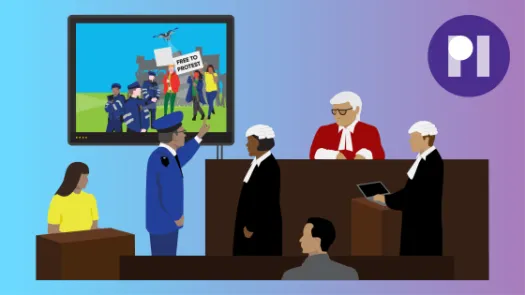The fight against mass surveillance continues in our 10 Human Rights Orgs case
Today, Privacy International, along with nine other NGOs including Liberty and Amnesty International, attended a hearing before the Grand Chamber of the European Court of Human Rights (ECtHR) to revisit the Court's first ruling on our case challenging UK mass surveillance and intelligence sharing. In September 2018, the First Section of the ECtHR ruled that the UK government's mass interception program violates the rights to privacy and freedom of expression. Notwithstanding the positve aspects of the judgment, there remain several significant shortcomings. We therefore asked the European Court to reconsider parts of its ruling.
Society and technology have undergone a number of changes over the past several years. In the past, mass surveillance, if it was used at all, was limited to monitoring international communications links via phone, fax, or telex transmission. Today, this has changed. As much as we exist offline, we also exist online as do our communications data and other sensitive content, such as healthcare records, financial transactions, etc. Most communications now travel internationally in the course of their transmission even if the sender and the recipient are located in the same city. States are also able to take advantage of technological advances that all them to process and analyse massive amounts of content and communications data very quickly.
Because of the developments in interception capabilities and the vast amounts of data traveling around the globe, we argue:
- Mass interception is neither strictly necessary nor proportionate in a democratic society, and UK's bulk interception regime contravenes Articles 8 and 10 of the European Convention on Human Rights.
- The UK's receipt of material through intelligence sharing must be regulated in the same way as direct interception.
You can find our entire submission to the Grand Chamber of the European Court of Human Rights here.
Take a look at the history of the case here.
For a brief overview of the September 2018 judgment and why the fight against mass surveillance must continue, see here and our Q&A section.
* Picture owned by Adrian Grycuk (CC BY-SA 3.0 pl)


